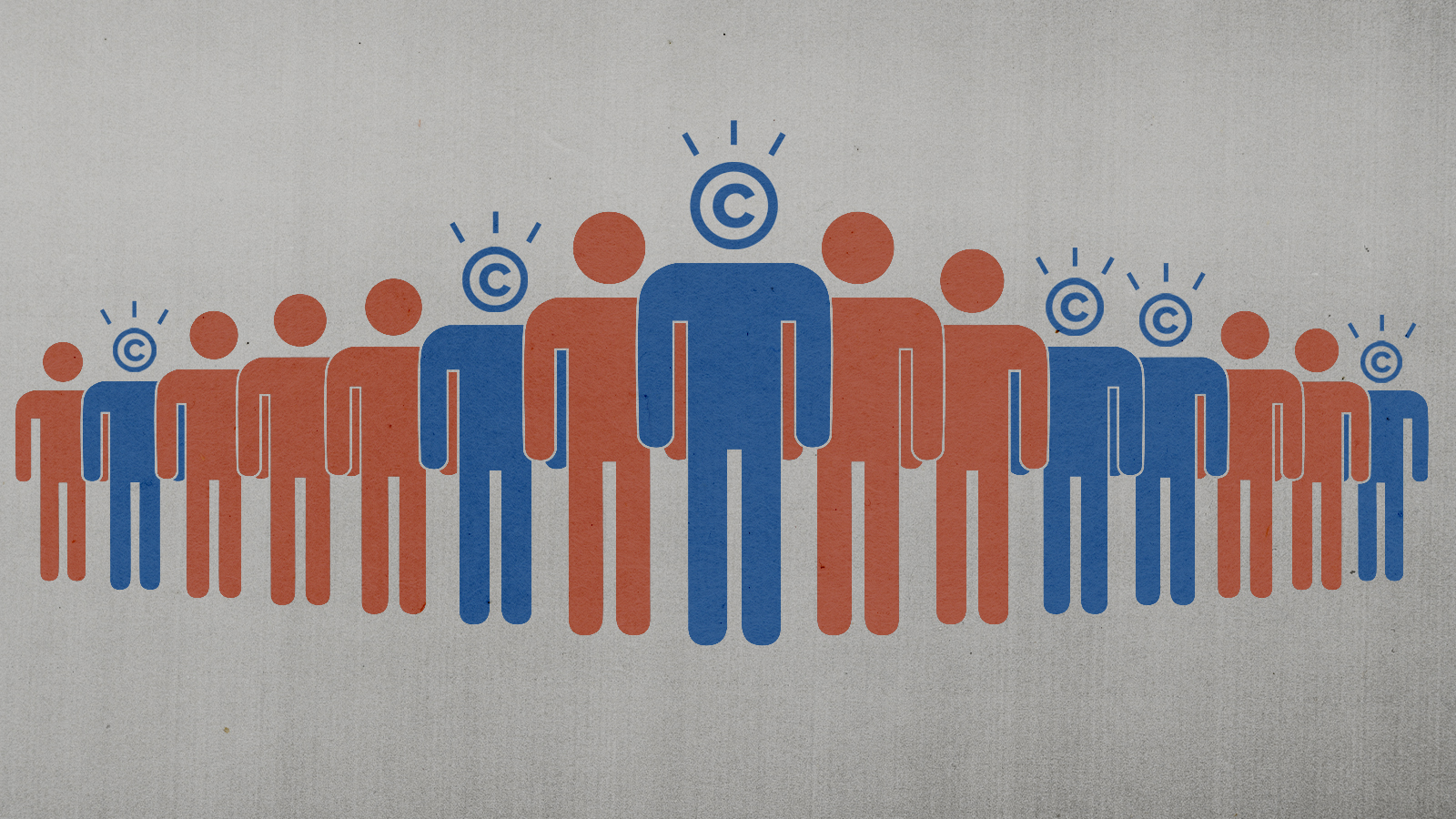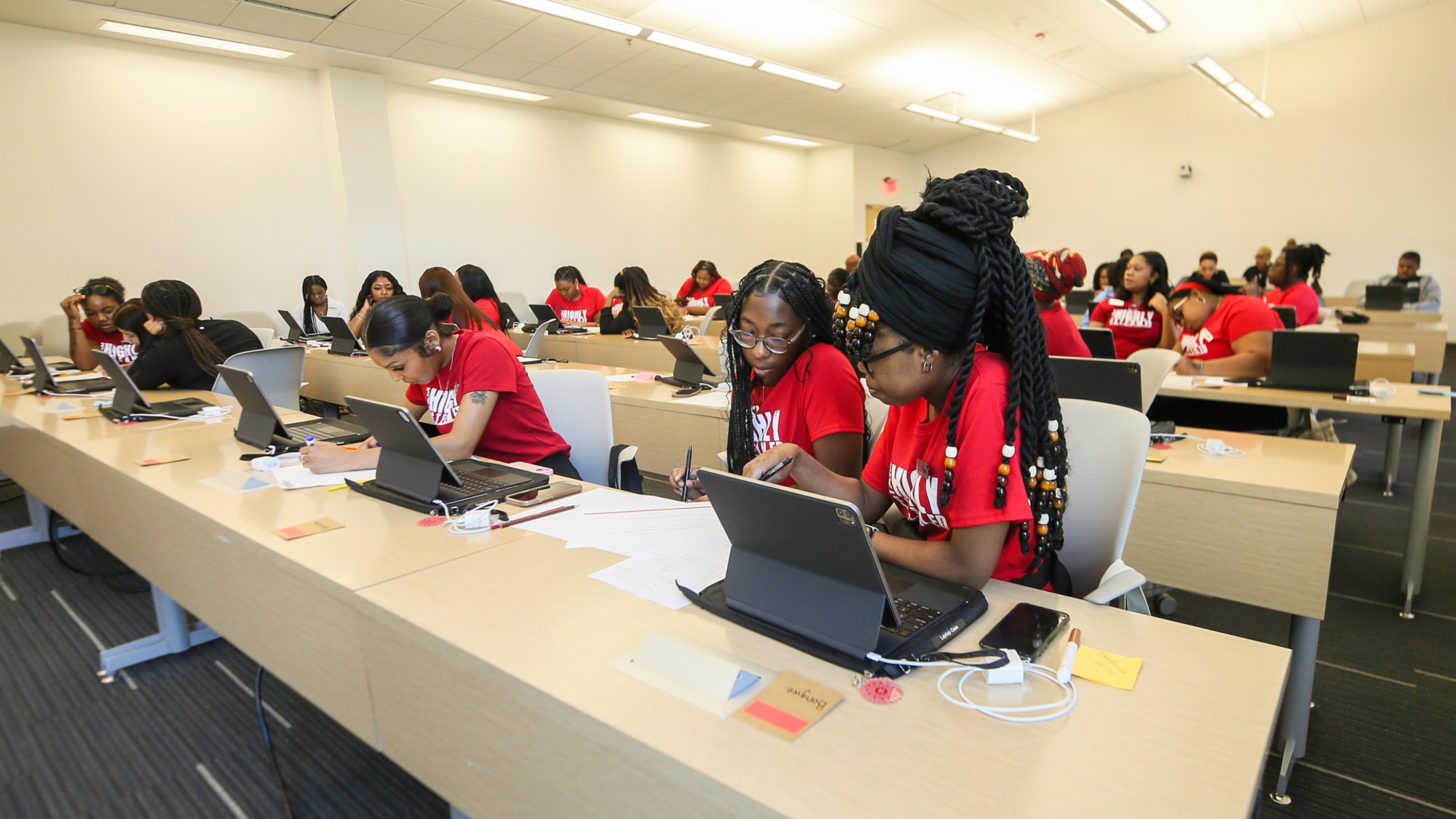The growing necessity of ownership
The left and right agree: It's good to be an owner


A free daily email with the biggest news stories of the day – and the best features from TheWeek.com
You are now subscribed
Your newsletter sign-up was successful
Lately, I've been thinking about ownership. I've been thinking about it because we moved last year and bought a new house, and with that ownership comes the right and responsibility to change and maintain our home, to keep out the water and keep in the heat and make it as I like it. But I've also been thinking about ownership because of what I do not own, including (per standard freelance journalism contracts) the copyright to thousands of articles I've published at dozens of outlets in my career.
I'm not the only one thinking about ownership, either. Writer Aaron M. Renn, who pens a newsletter for men called The Masculinist, has for several years now argued for the "importance of owned space." His idea has a strange lineage, and many readers won't find his cases in point very sympathetic. But I increasingly think the idea itself is right, and that it's going to spread — taking different forms and being described in different vocabularies — into mainstream contexts. The shift toward broader ownership may be slow. But the necessity of ownership is becoming ever more obvious to ever more people of ever more ilks.
A politically and theologically conservative Christian, Renn came by his call to owned space from an odd source: a pseudonymous writer known as "Bronze Age Pervert (BAP)," who is — in Renn's summary — writing "from an explicitly pagan and thus anti-Christian perspective" and producing work anyone reasonably normal will likely "hate" and "not finish." BAP introduces owned space in terms of animal territoriality, arguing that "[l]ife is at most basic [is a] struggle for ownership of space," and human life is no exception to that rule.
The Week
Escape your echo chamber. Get the facts behind the news, plus analysis from multiple perspectives.

Sign up for The Week's Free Newsletters
From our morning news briefing to a weekly Good News Newsletter, get the best of The Week delivered directly to your inbox.
From our morning news briefing to a weekly Good News Newsletter, get the best of The Week delivered directly to your inbox.
Renn moves from there to "think more generally about the idea of owned physical, social, and cultural space" — as well as the inherent risk of non-ownership. "If you don't have owned space then you are at a profound disadvantage in what you are doing," he argues. "For example, many people have built lucrative careers on YouTube or Instagram. But because they are using a platform that is owned by someone else, they can — and this has happened to many people — have their livelihood and very digital presence erased at the click of a few keys."
Looking beyond the internet to major institutions and the marketplace, Renn says there "are remarkably few genuinely conservative institutions in America outside of politics and religion," and this means that "in their basic day to day existence of life in America, whether that be going to work, shopping, reading the news, or watching sports or mass entertainment, conservatives exist largely inside space owned by others — space from which they can be expelled at any time, often with significant negative personal consequences."
In positive contrast, he points to the controversial community led by patriarchal pastor-troll Doug Wilson in Moscow, Idaho. Members of Wilson's Christ Church and associated congregations, organizations, schools, and businesses comprise, in Renn's estimate, about 5 percent of the small city. They are a major social, economic, and political presence — far from a majority, but a critical mass. Many in the other 95 percent of Moscow, which is in one of just three Idaho counties to go blue in 2020, may not like what Wilson and his followers believe and do. But the Christ Church crowd can't be run out of town. They have ownership.
The journalism industry is learning this lesson apace. It's why Substack newsletters are increasingly popular among writers who fear they'll lose their jobs or freelance relationships or have already done so. "Since launching in 2017, Substack has grown to more than a million paying subscribers, boasts a valuation of $650 million," notes Reason's Matt Welch in a recent report. "The company's pitch to writers is seductive: You set a couple of subscription tiers (the most common price points are $5 a month and free), you let Substack facilitate the payment processing in return for a 10 percent cut, and then all the customer information and content is owned not by the platform but by the creators, who can leave at any time."
A free daily email with the biggest news stories of the day – and the best features from TheWeek.com
That's not quite ownership. But it's something much closer to ownership than writers are offered at most traditional outlets, where everything can be gone in an instant.
See, for example, the story of journalists Emma Gray and Claire Fallon, both formerly of HuffPost, reported at Poynter on Tuesday: "They enjoyed their jobs and had no plans to become 'Substack people,'" but after BuzzFeed bought HuffPost and laid them off last year, "[s]uddenly they had no income, significant responsibilities — Fallon was a new parent and Gray had a mortgage — and no claim to the podcast they'd created and built over six years." The podcast title, archive, everything belonged to BuzzFeed. Now, Gray told Poynter, she "would not start a show with a media company without having an explicit exit plan laid out, and without having it in my contract that I had some ownership rights or path to ownership."
Gray and Renn (let alone BAP) are poles apart ideologically, and their motivating concerns here are divergent, too. His interest is in religious autonomy, political power, and cultural breathing room; hers is in avoiding another round of the "destabilizing and terrible" experience of having corporate overlords take away intensely personal work to which she'd devoted years of her life.
Despite all that difference, they both want ownership — and they're both correct in their realization that it offers at least some defense against the threats they fear.
It's a realization I suspect will only grow more common in years to come, and, as it does, ownership will take different forms and names. It doesn't have to be individualistic; worker cooperatives are a version of ownership too. Unionization is a related impulse, and, though the left may never like the word "ownership," smacking as it does of private property and capital, so too are demands for workers to be less alienated from the products of their labor.
The push toward ownership will take a while to succeed, given the financial and practical conditions that would need to change to make it a widespread reality. And with varying language and iterations, it may take a while, too, for disparate political factions to realize they're seeking roughly the same thing. But they are, and, with any luck, they'll get it.
Bonnie Kristian was a deputy editor and acting editor-in-chief of TheWeek.com. She is a columnist at Christianity Today and author of Untrustworthy: The Knowledge Crisis Breaking Our Brains, Polluting Our Politics, and Corrupting Christian Community (forthcoming 2022) and A Flexible Faith: Rethinking What It Means to Follow Jesus Today (2018). Her writing has also appeared at Time Magazine, CNN, USA Today, Newsweek, the Los Angeles Times, and The American Conservative, among other outlets.
-
 Local elections 2026: where are they and who is expected to win?
Local elections 2026: where are they and who is expected to win?The Explainer Labour is braced for heavy losses and U-turn on postponing some council elections hasn’t helped the party’s prospects
-
 6 of the world’s most accessible destinations
6 of the world’s most accessible destinationsThe Week Recommends Experience all of Berlin, Singapore and Sydney
-
 How the FCC’s ‘equal time’ rule works
How the FCC’s ‘equal time’ rule worksIn the Spotlight The law is at the heart of the Colbert-CBS conflict
-
 ‘The forces he united still shape the Democratic Party’
‘The forces he united still shape the Democratic Party’Instant Opinion Opinion, comment and editorials of the day
-
 ‘Those rights don’t exist to protect criminals’
‘Those rights don’t exist to protect criminals’Instant Opinion Opinion, comment and editorials of the day
-
 ‘The mark’s significance is psychological, if that’
‘The mark’s significance is psychological, if that’Instant Opinion Opinion, comment and editorials of the day
-
 ‘The West needs people’
‘The West needs people’Instant Opinion Opinion, comment and editorials of the day
-
 ‘The censorious effect is the same, even if deployed covertly’
‘The censorious effect is the same, even if deployed covertly’Instant Opinion Opinion, comment and editorials of the day
-
 Vietnam’s ‘balancing act’ with the US, China and Europe
Vietnam’s ‘balancing act’ with the US, China and EuropeIn the Spotlight Despite decades of ‘steadily improving relations’, Hanoi is still ‘deeply suspicious’ of the US as it tries to ‘diversify’ its options
-
 ‘The sport is still run on a shoestring’
‘The sport is still run on a shoestring’Instant Opinion Opinion, comment and editorials of the day
-
 ‘We know how to make our educational system world-class again’
‘We know how to make our educational system world-class again’Instant Opinion Opinion, comment and editorials of the day
